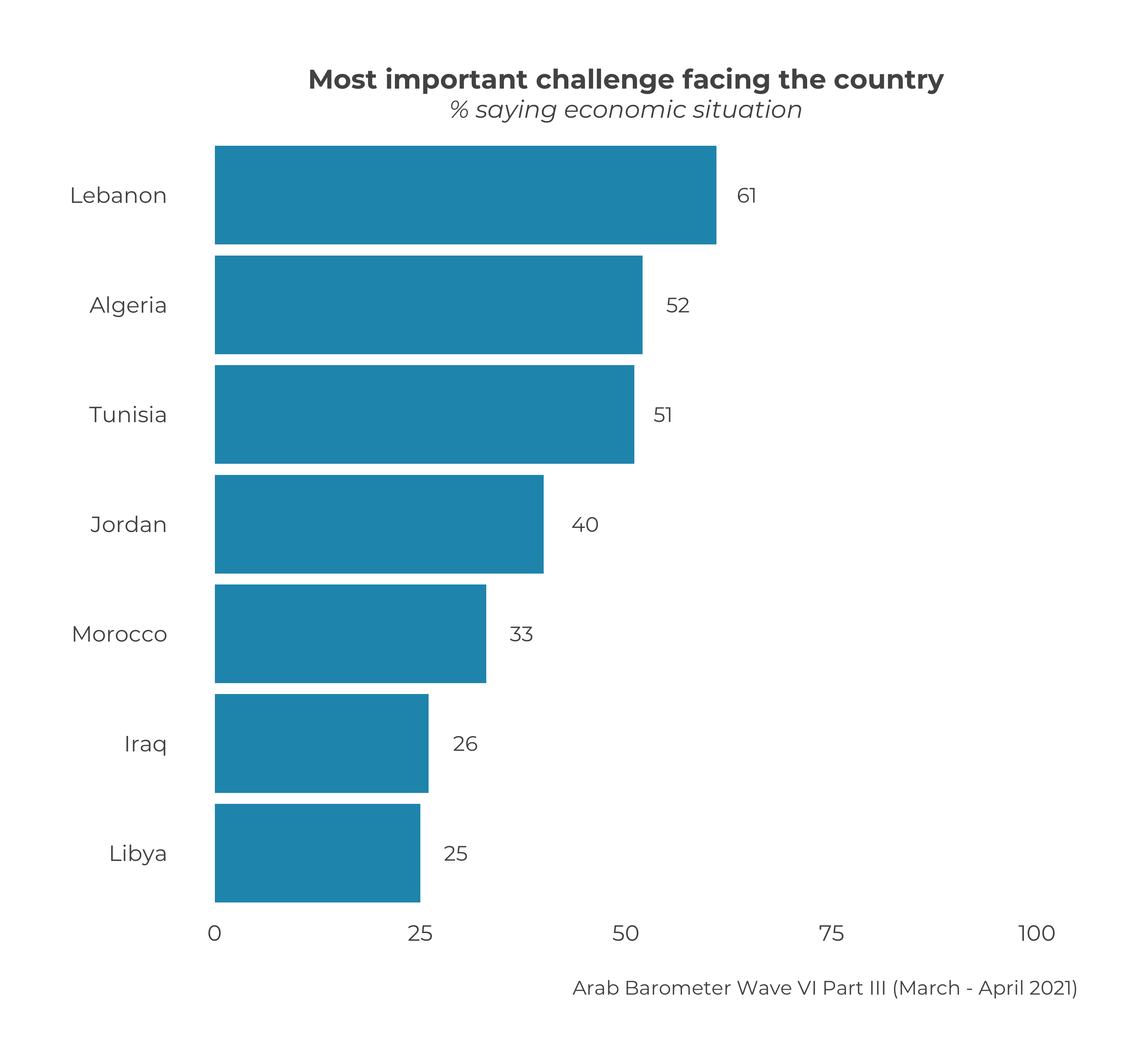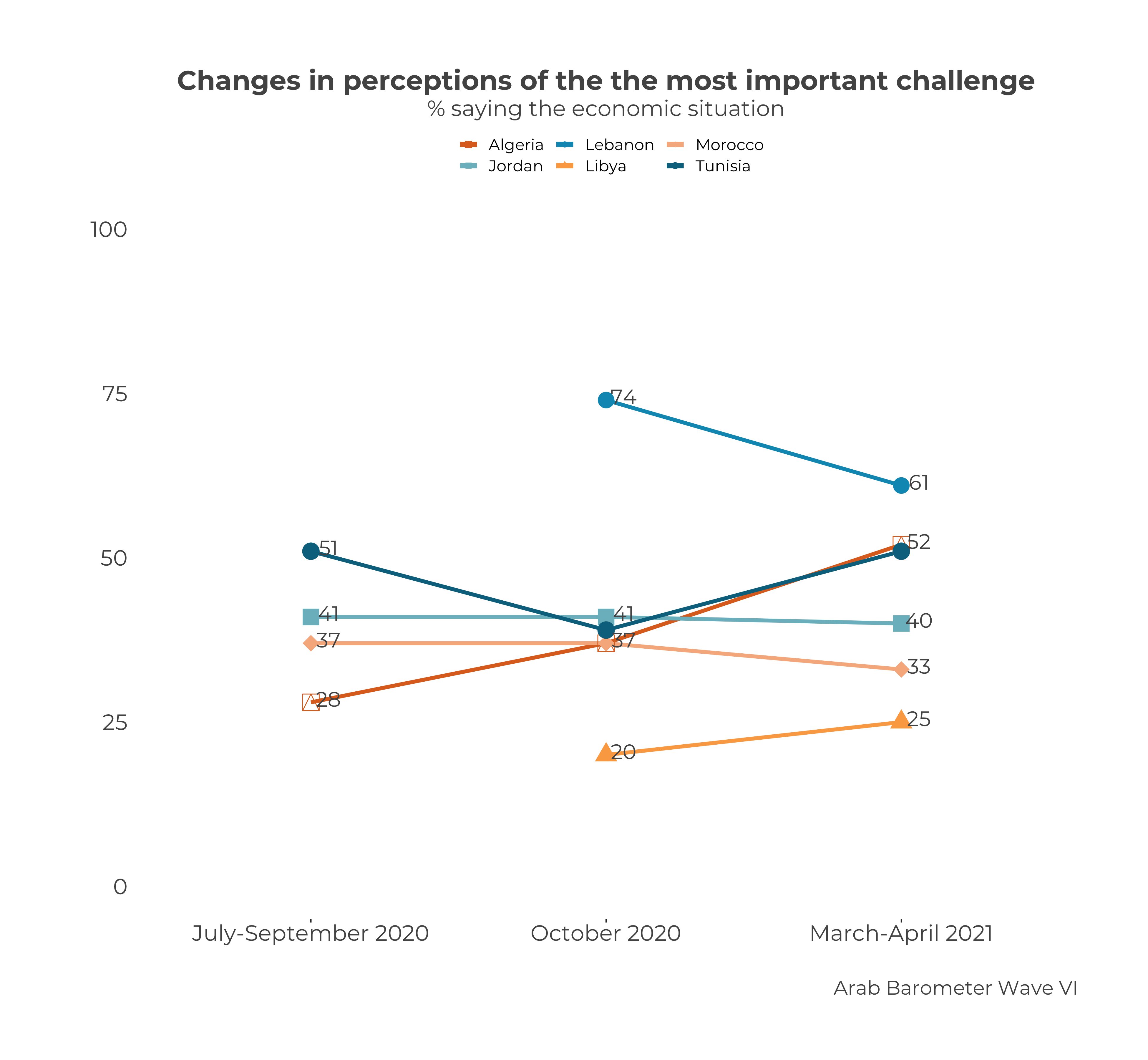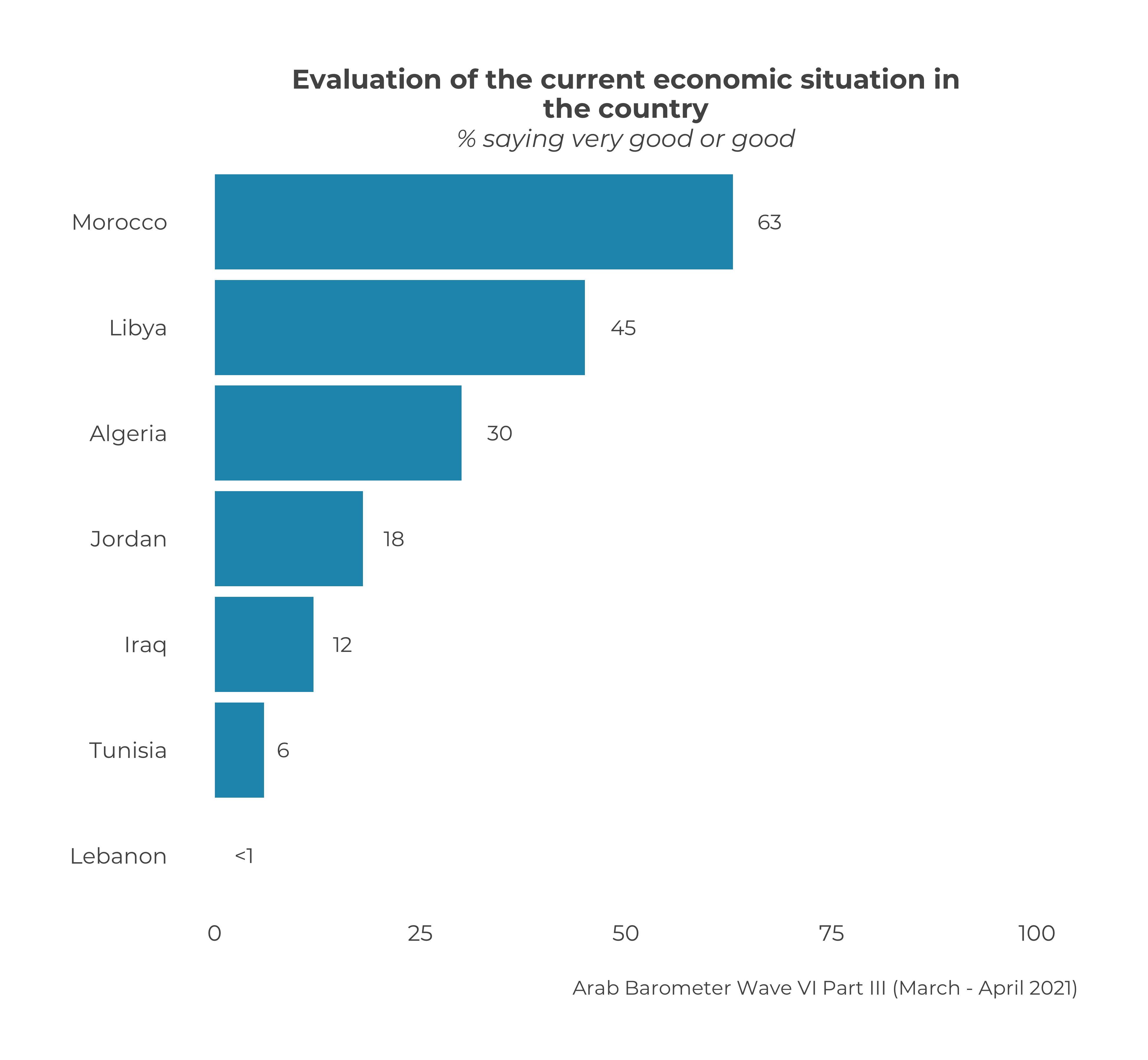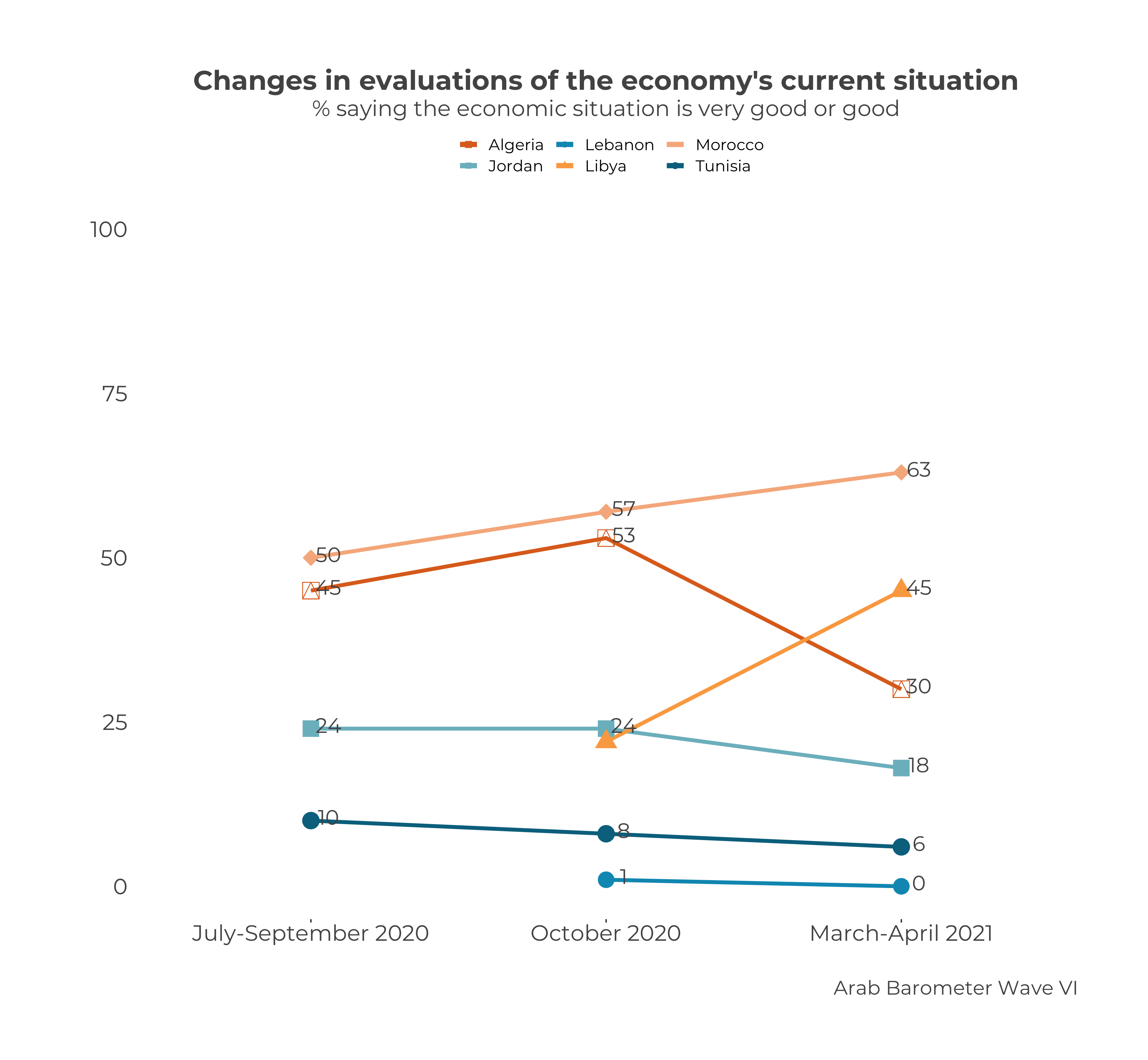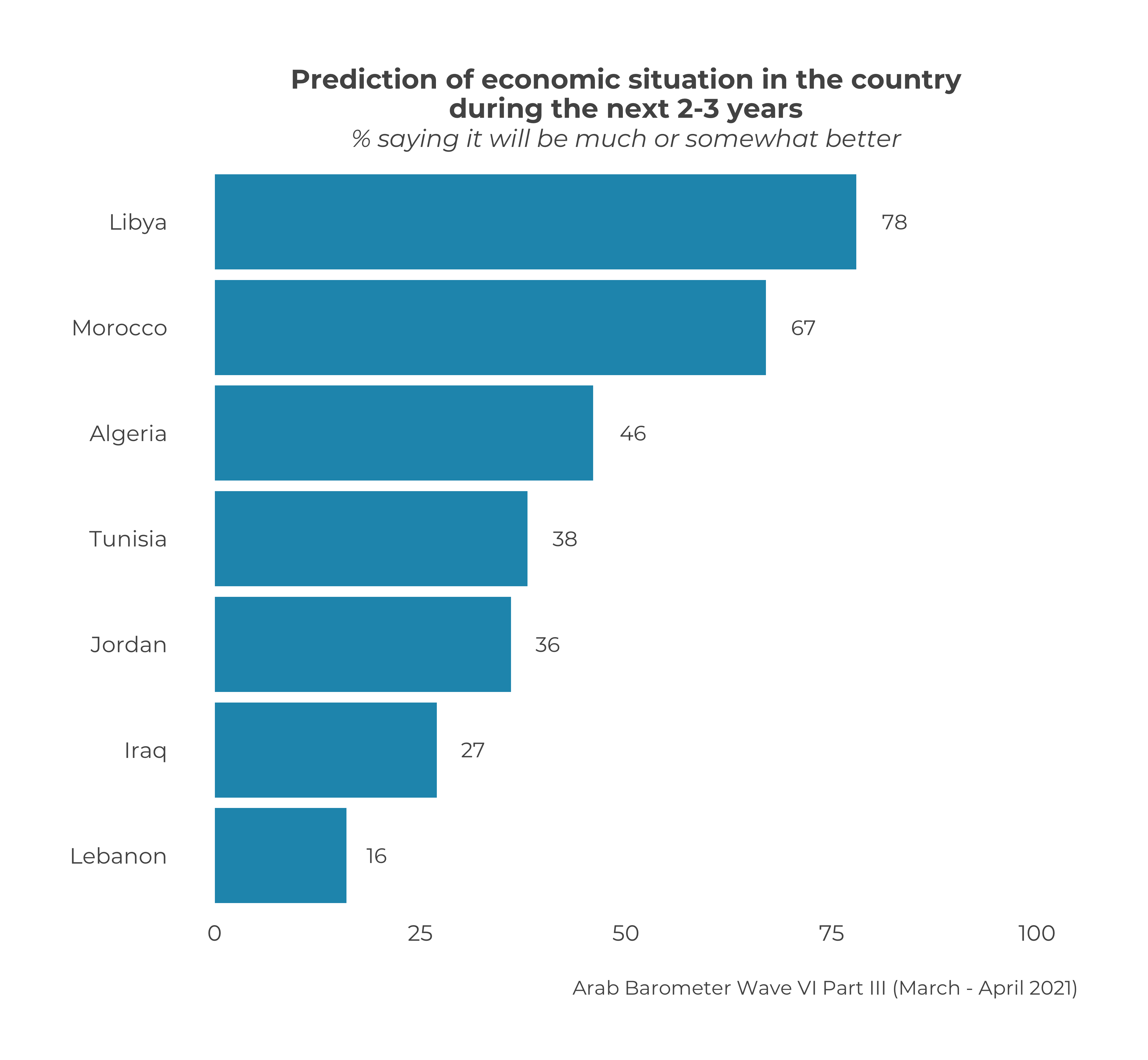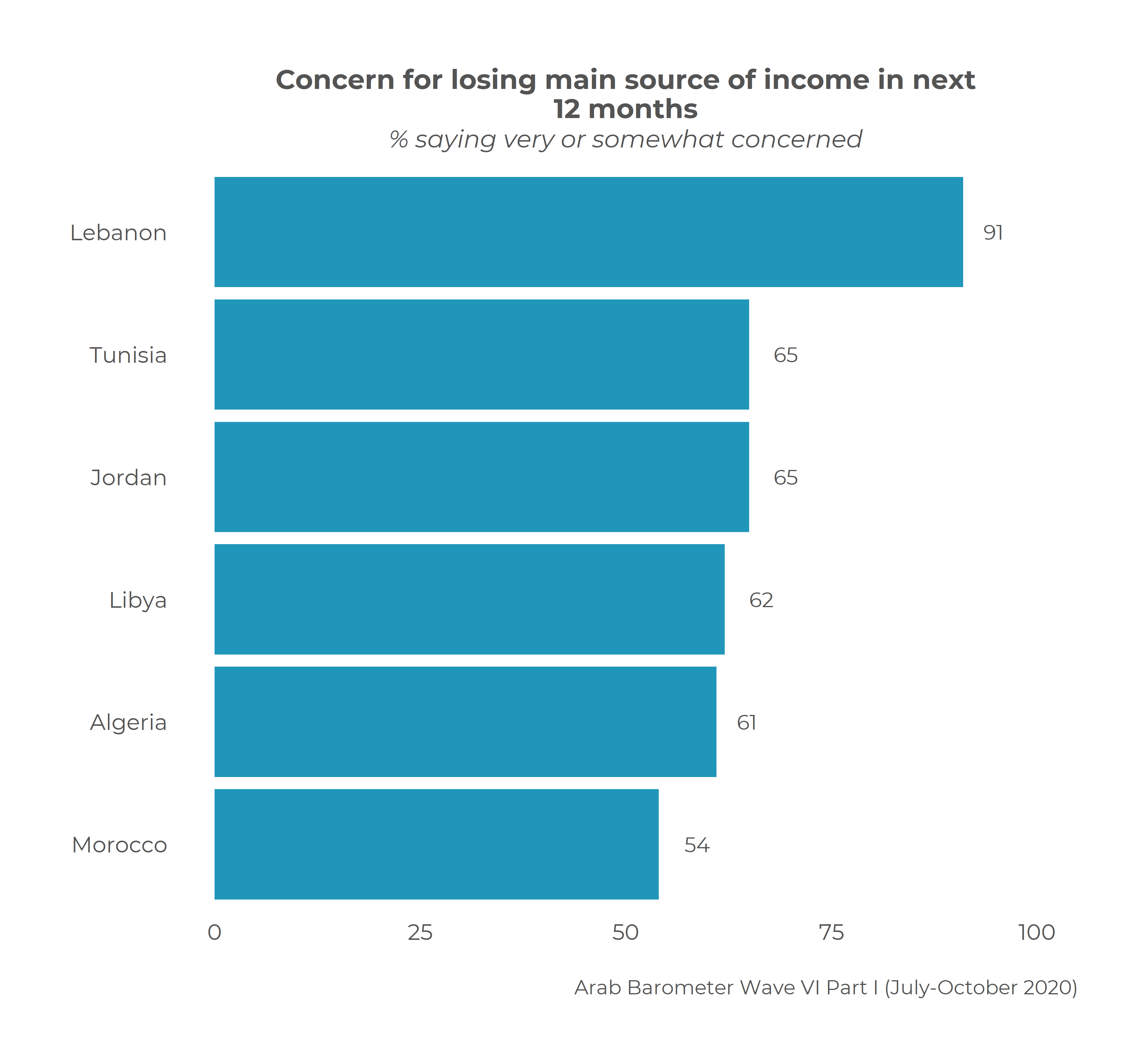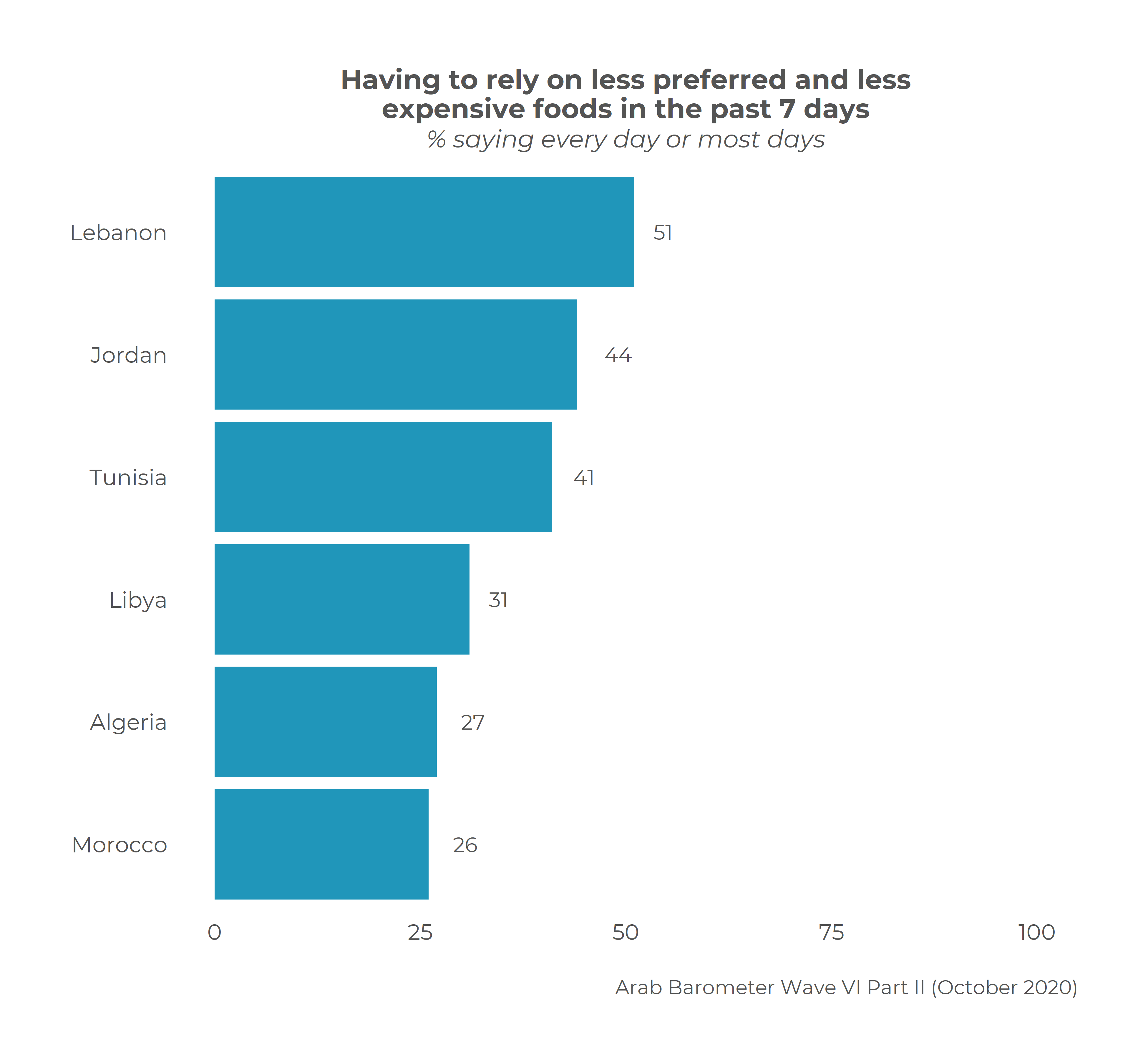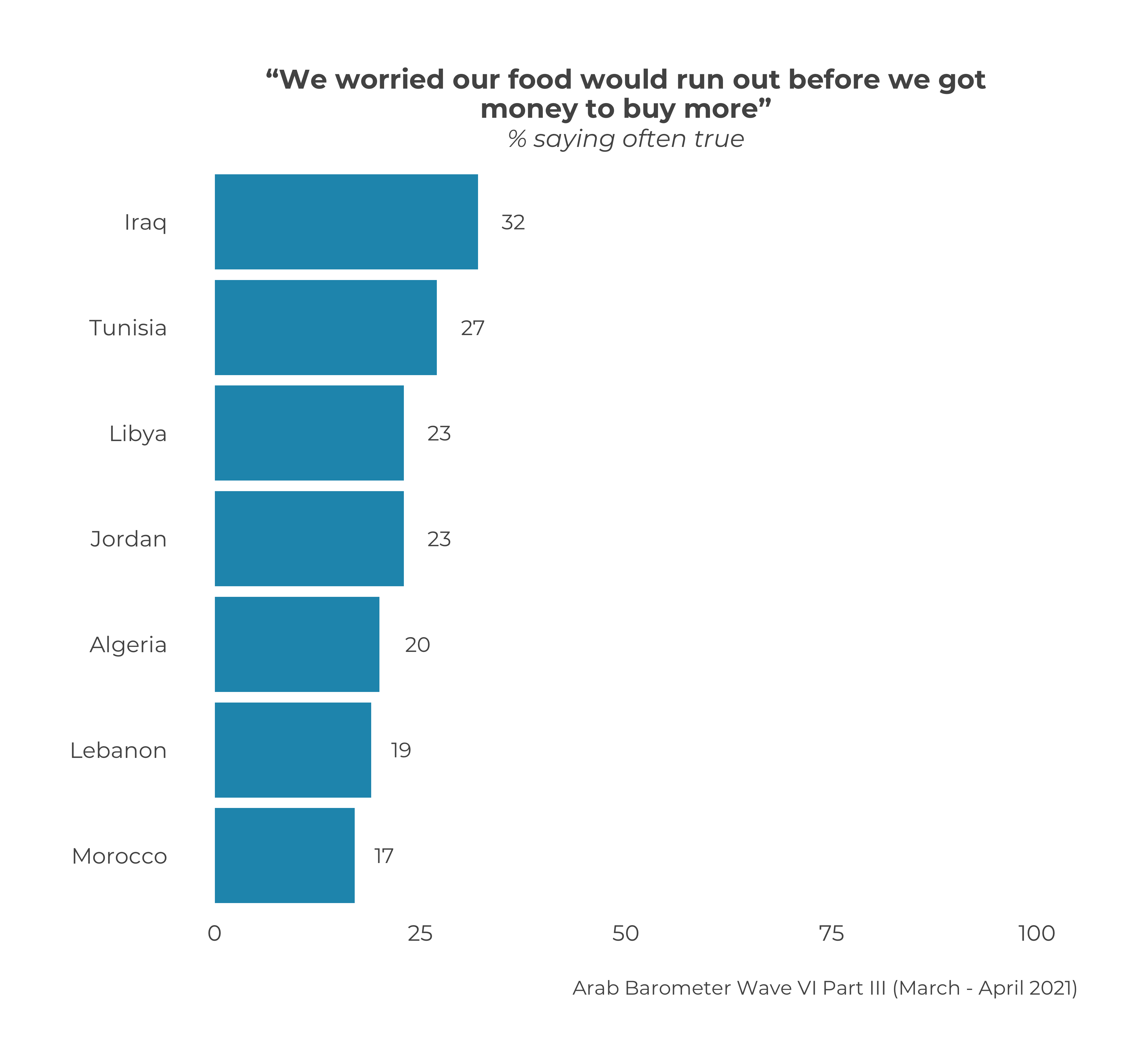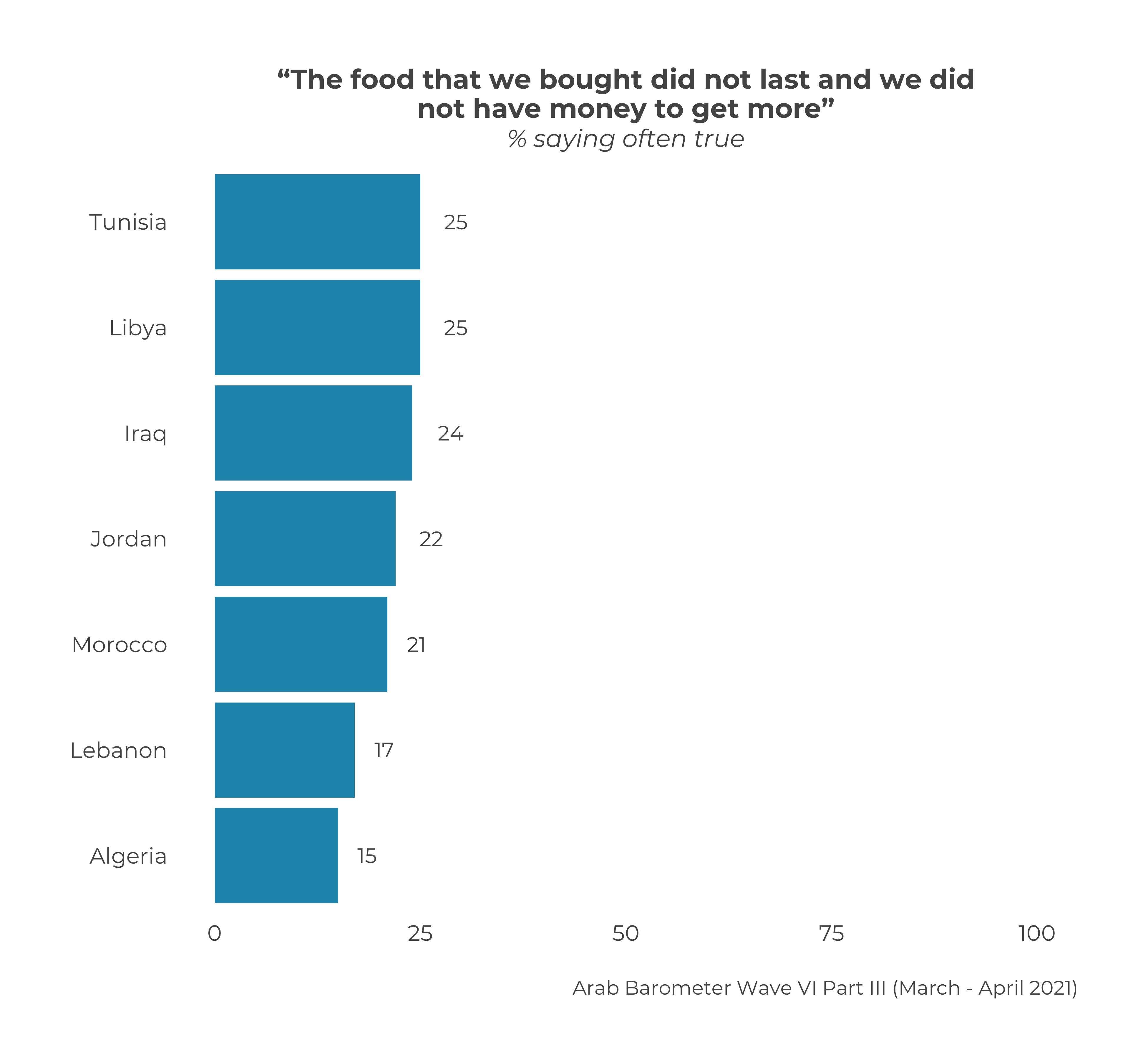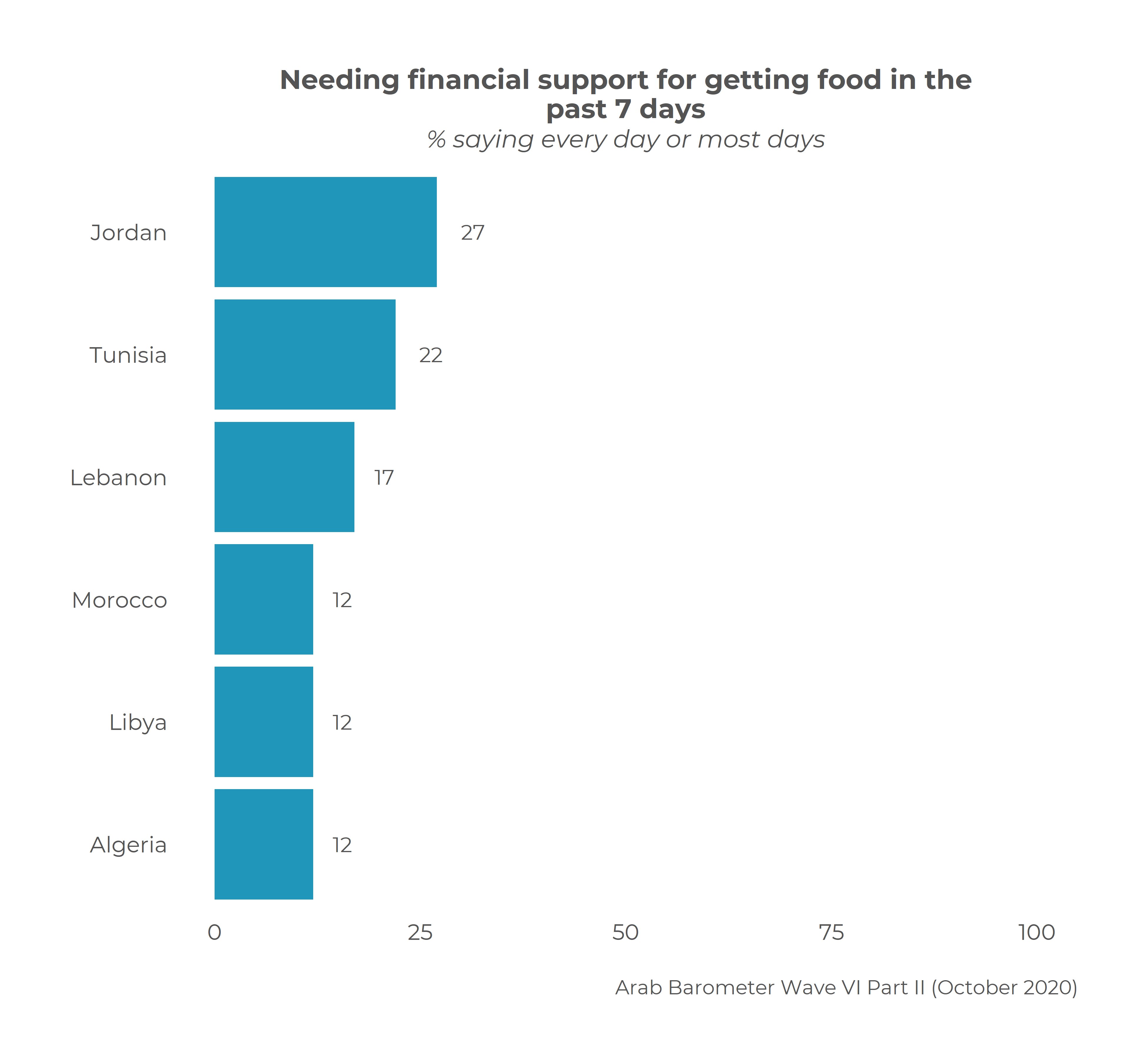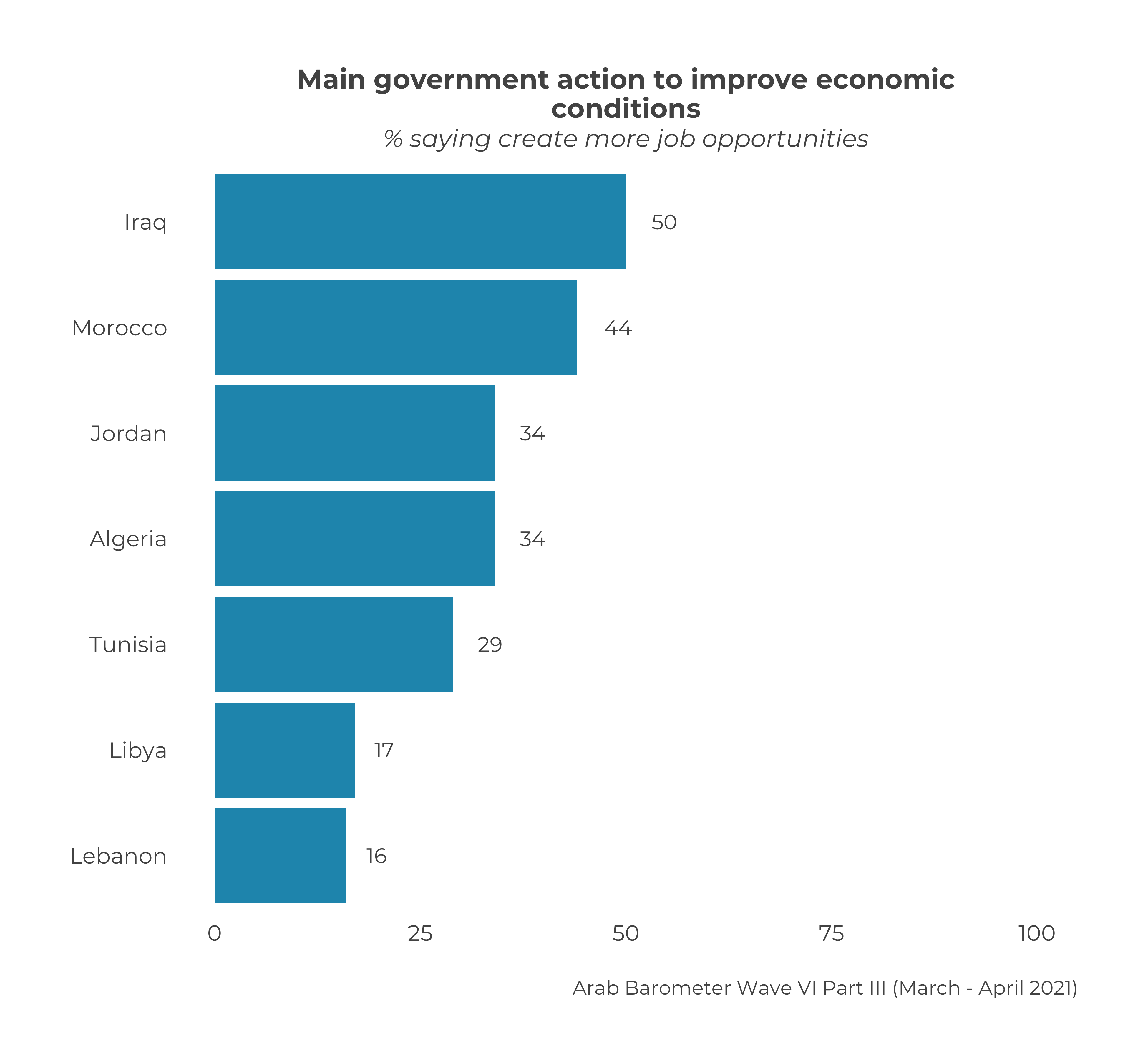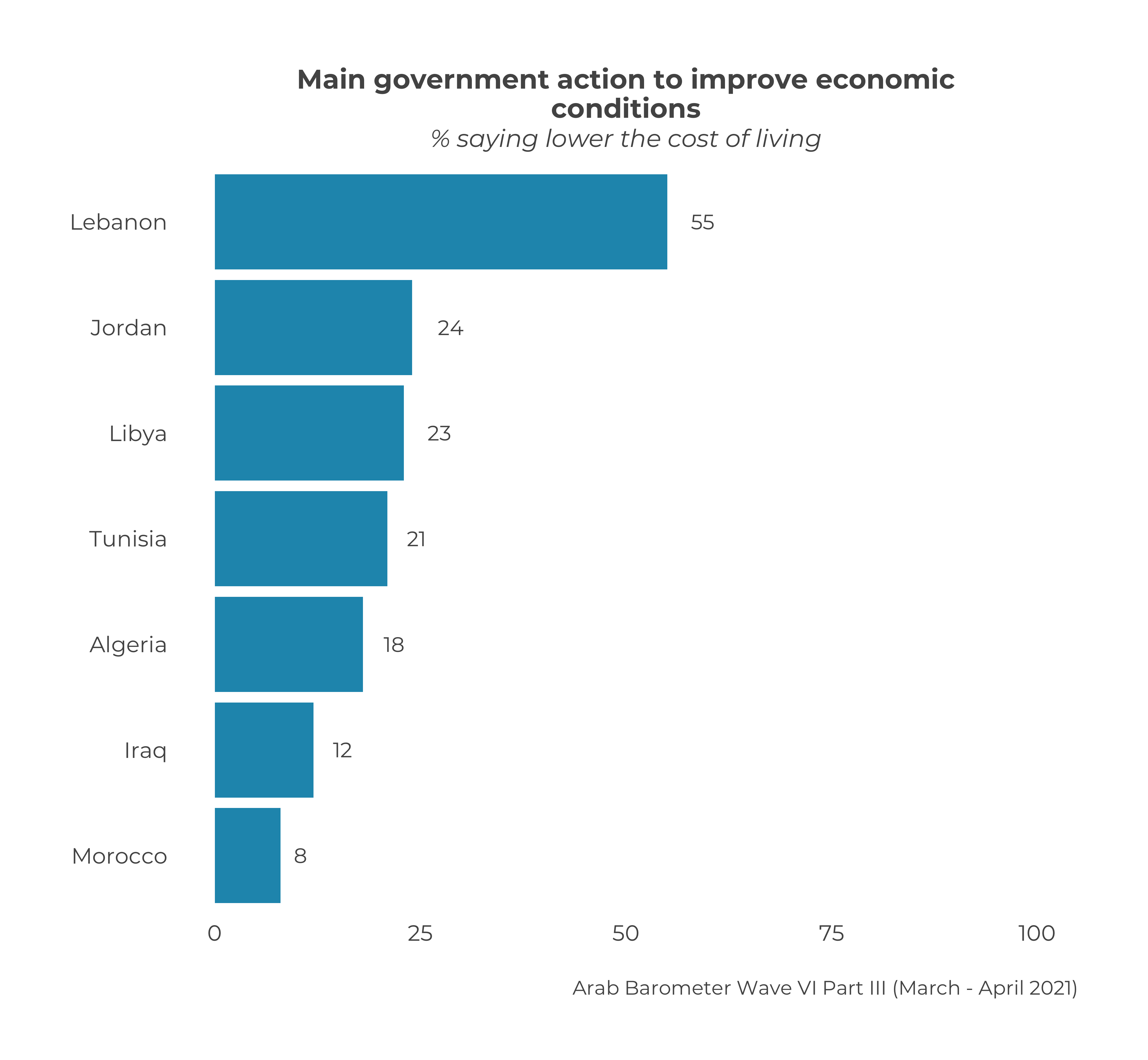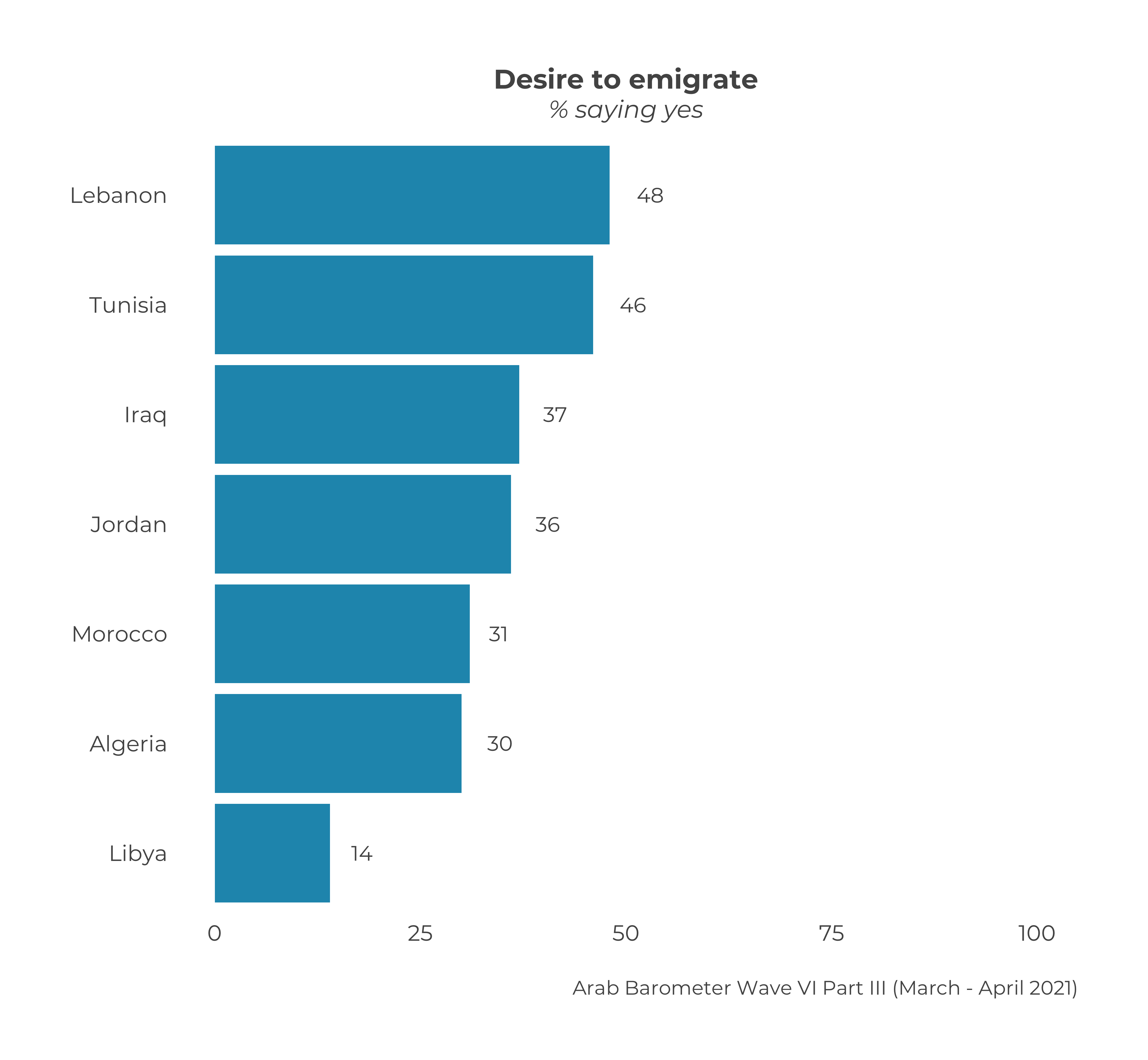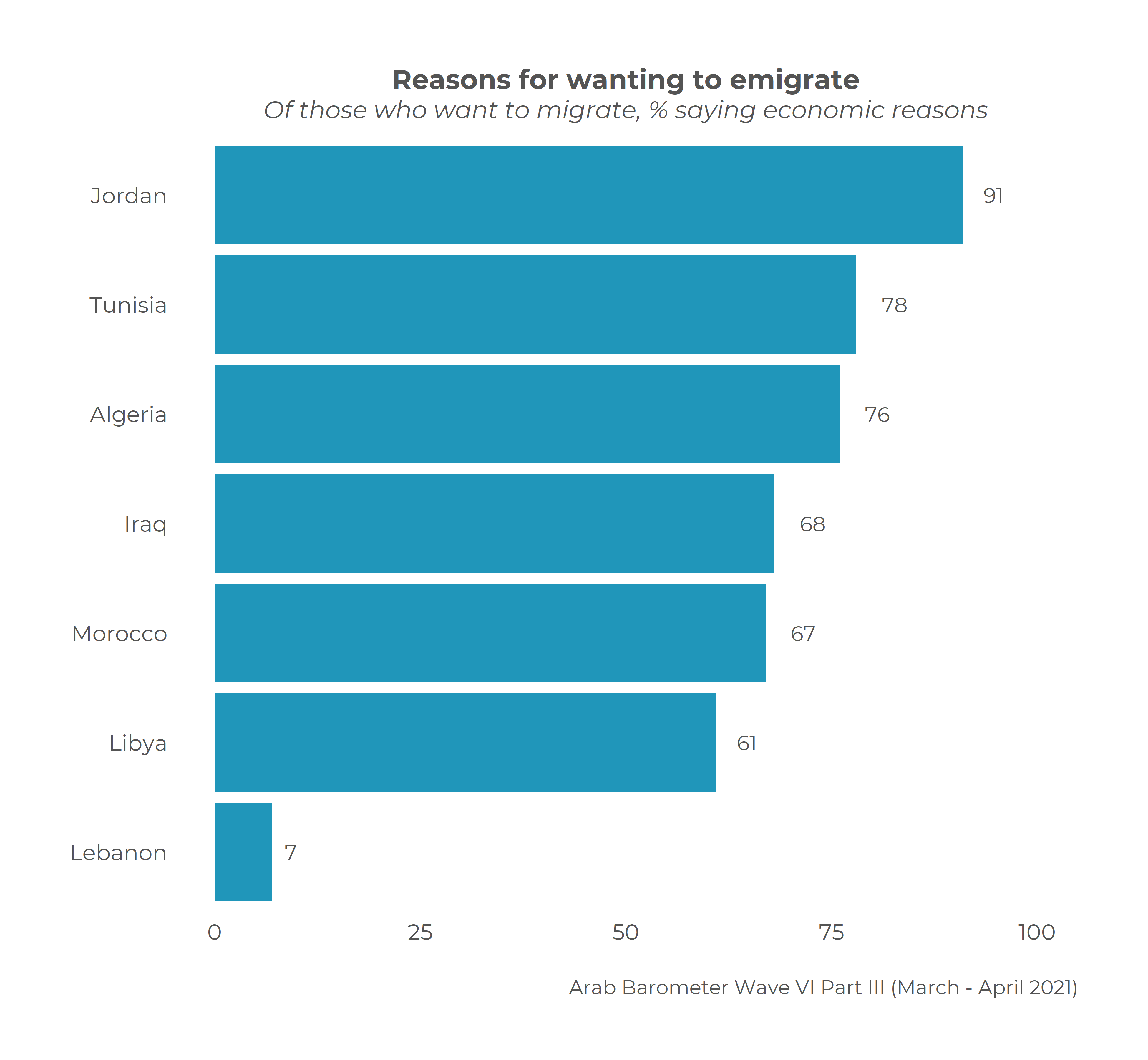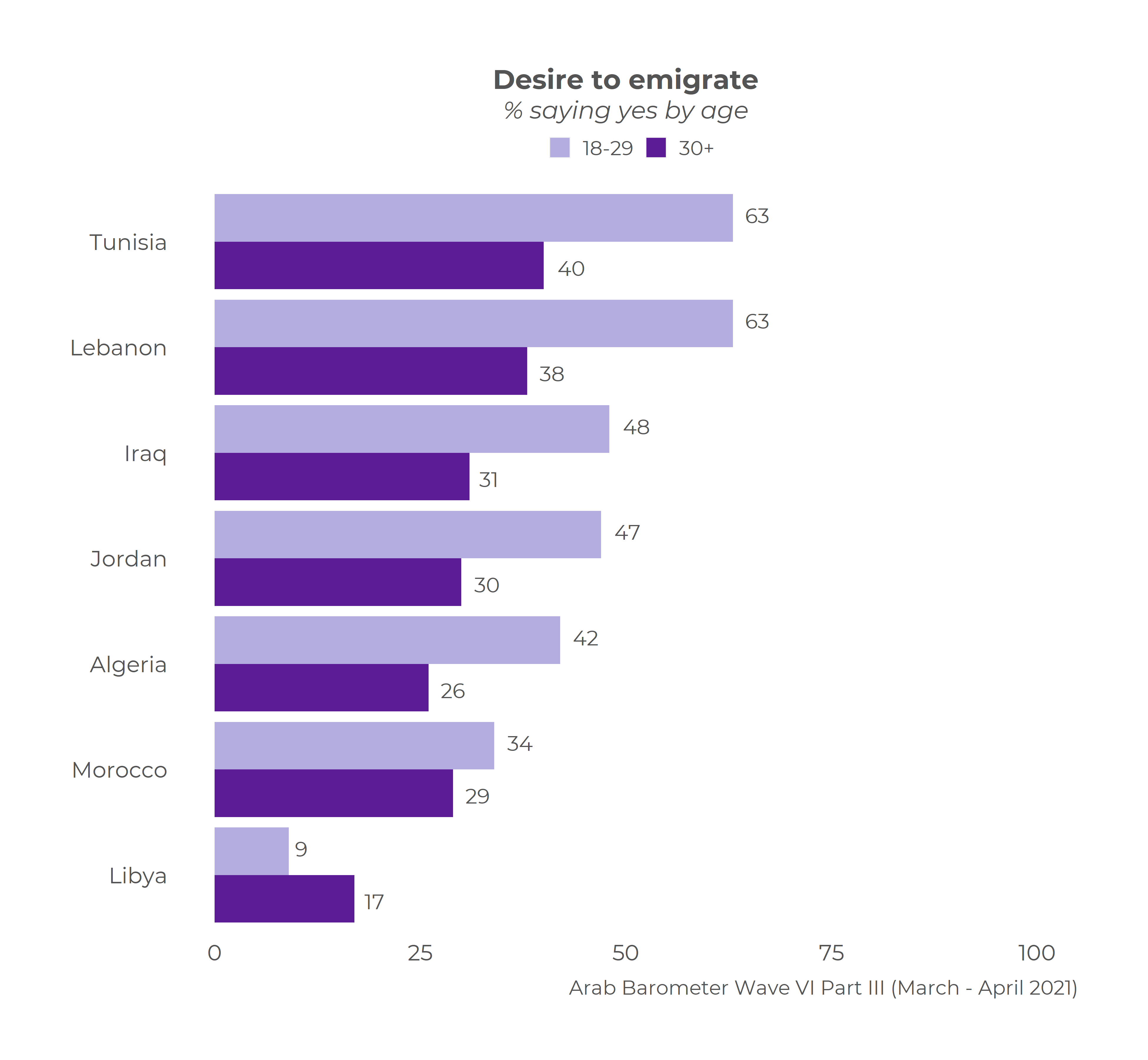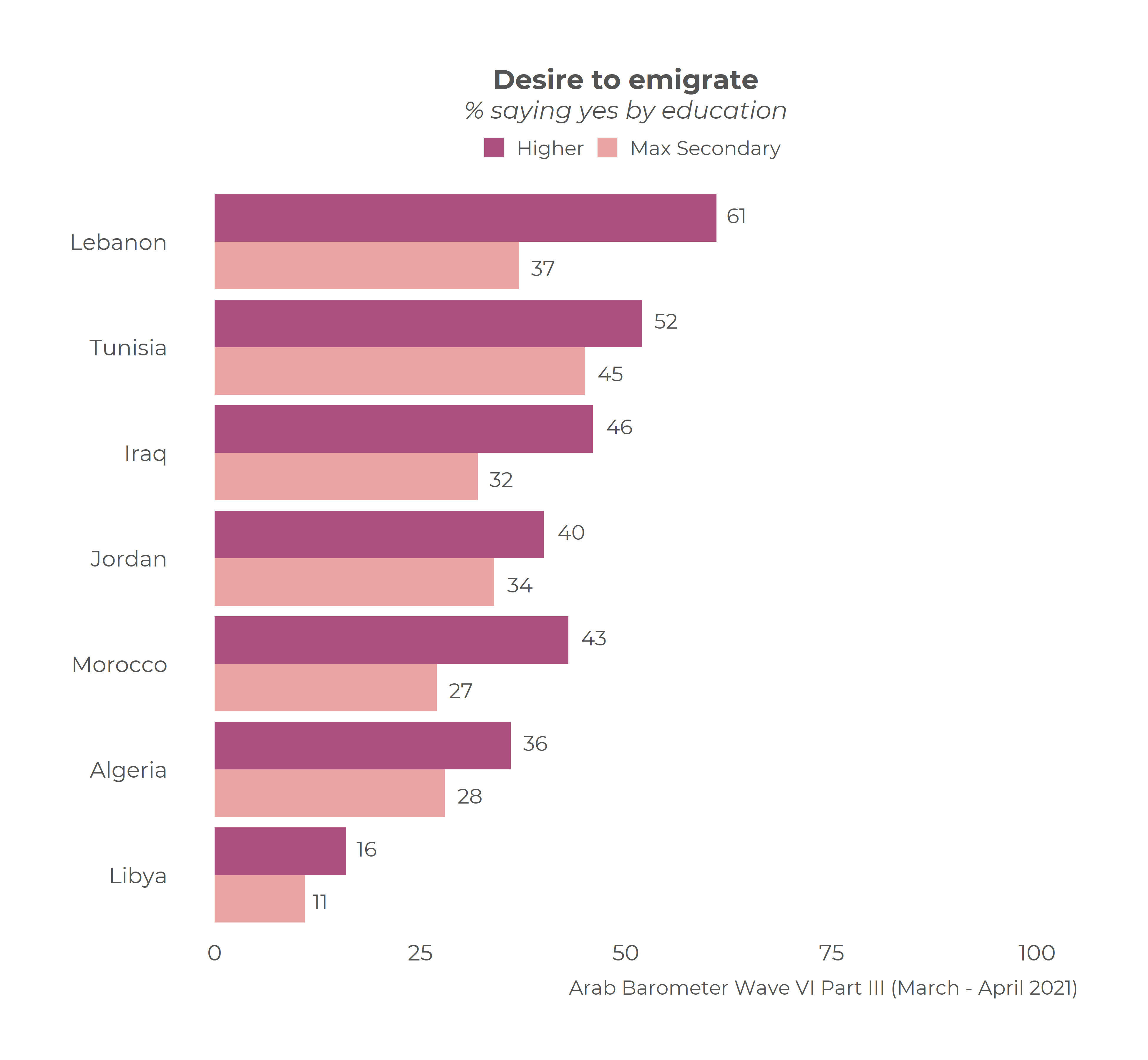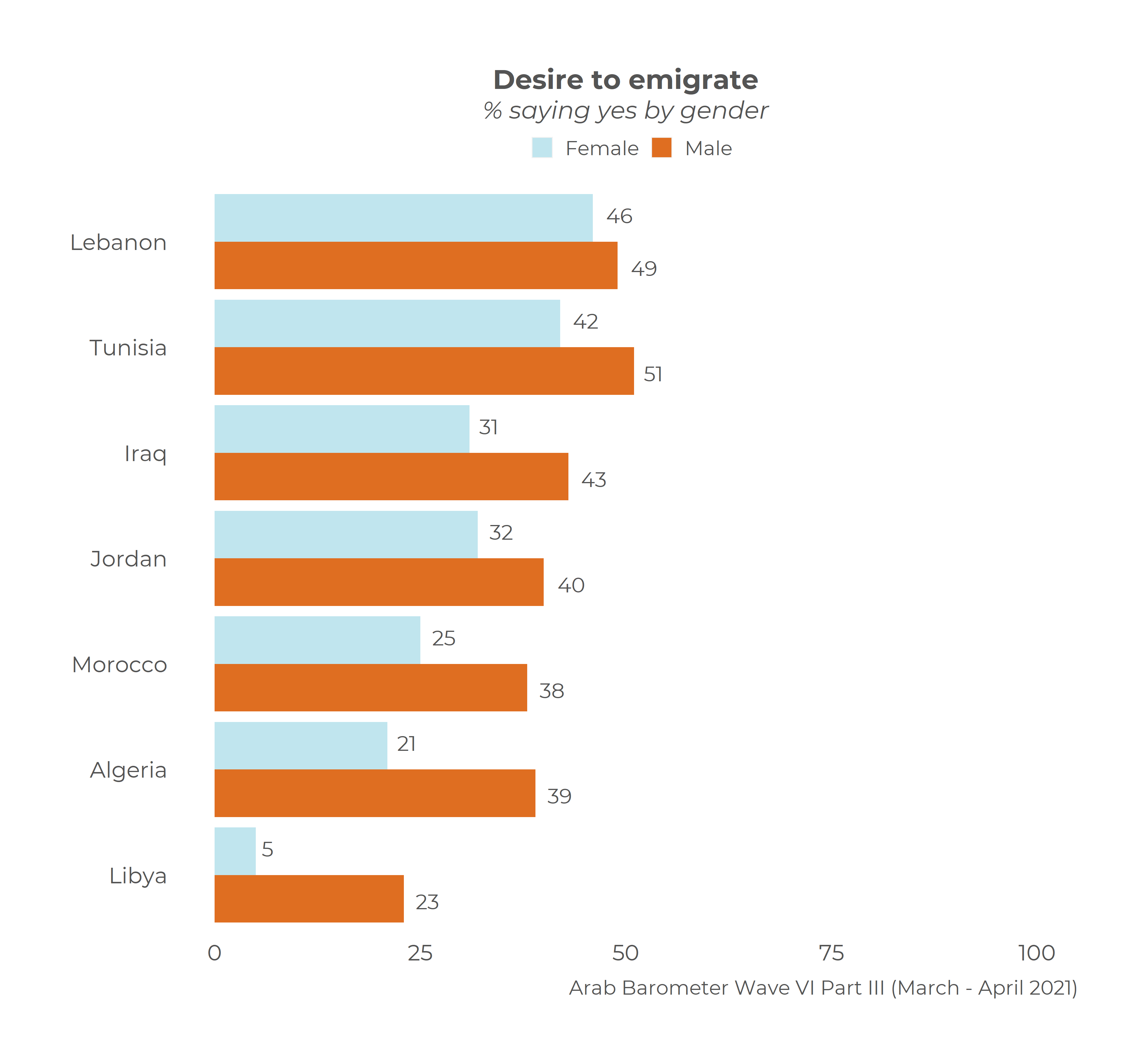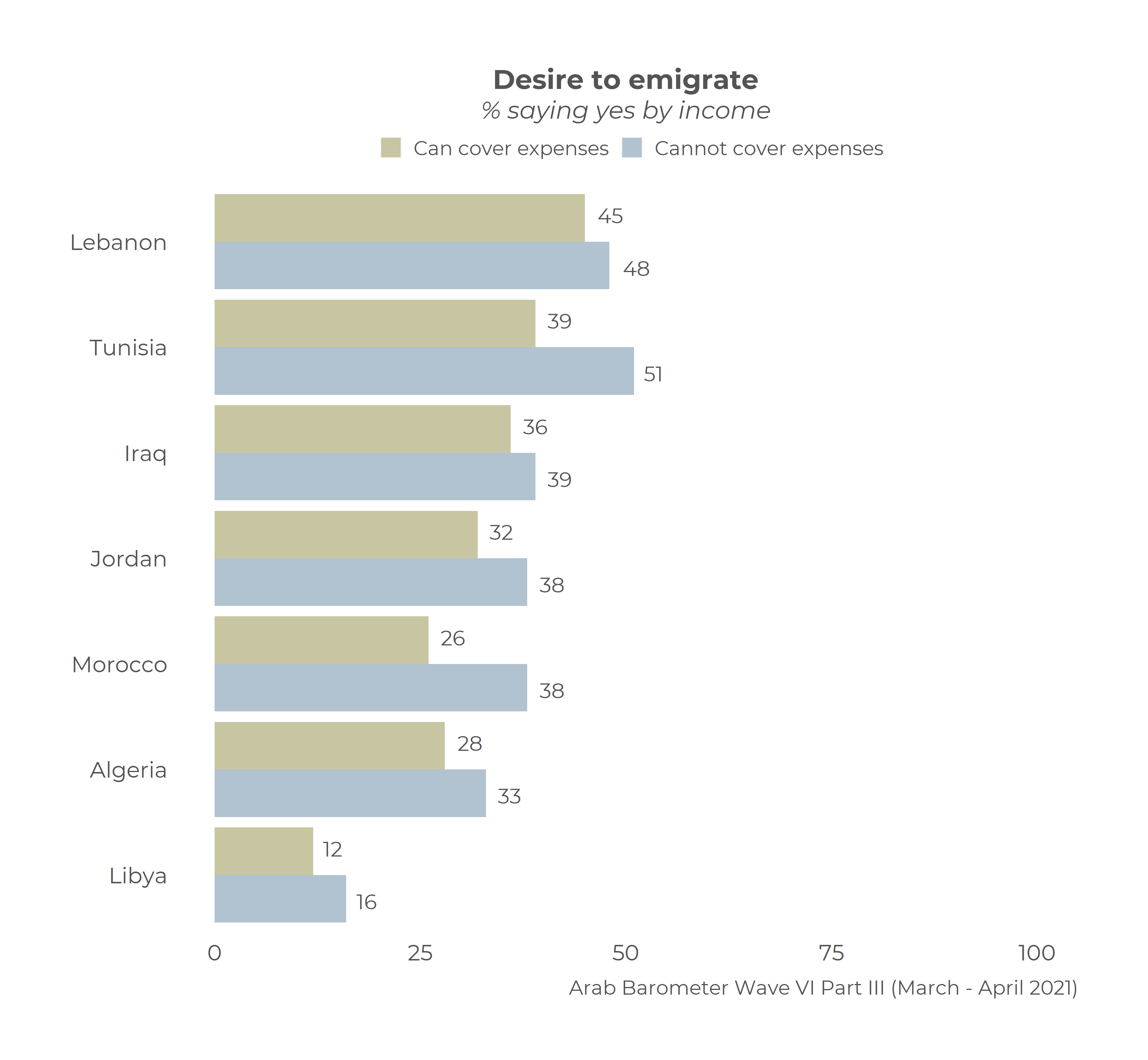Background:
In the sixth wave of Arab Barometer, we interviewed citizens from seven countries in the Middle East and North Africa within the period of July 2020 – April 2021, tracking citizens’ evaluations of their economic situation during the unprecedented times of the COVID-19 pandemic.
The following factsheet sets out some of the main findings and links to wider information where it is available.
Key Findings
- The economy is the top challenge facing the region, and economic pessimism is prevalent regarding the current and near future conditions. Despite COVID-19 dominating global and regional headlines, a larger proportion of respondents believed the economic situation was the biggest challenge their country was facing in the Spring of 2021. From the surveyed countries as a whole, 41 percent said the economic situation was the biggest challenge facing their country in the Spring of 2021 (followed by 28 percent who listed COVID-19). Only in Jordan and Morocco did citizens identify COVID-19 as a more important challenge. Minorities across most countries were upbeat about their current economic situation. From the surveyed countries as a whole, only a quarter of respondents (25 percent) said the current economic situation in their country was good or very good in the Spring of 2021. Only in Morocco did a majority (63 percent) hold a positive view of their economy. Moreover, minorities in most countries believed the near future was brighter. From the surveyed countries as a whole, 44 percent said their economic situation will be somewhat or much better in 2-3 years. Only in Libya (78 percent) and Morocco (67 percent) did majorities predict a better economic situation in 2-3 years.
- Concern about income loss among a majority of respondents coincides with food insecurity among substantial proportions. Economic uncertainty brought about by COVID-19 exacerbated anxieties about income loss. Two thirds of respondents as a whole (67 percent) and majorities across all surveyed countries said they were somewhat or very concerned about losing their main source of income in the next 12 months in the summer/fall of 2020. As a result, food consumption patterns and concerns about food provision were heightened. Notable proportions of respondents have had to change their food consumption patterns (37 percent of respondents as a whole), worried that food would run out and they couldn’t buy more (23 percent), indeed ran out of food and could not afford to buy more (21 percent) or required financial support for buying food (17 percent).
- As ways of alleviating the economic hardship, job creation and lowering the cost of living are the top two policy priorities among citizens of surveyed countries. The largest proportion of respondents identified job creation (32 percent) and lowering the cost of living (22 percent) as the top two priorities among different government policies to address the economic hardship.
- The economic hardships are driving substantial proportions of citizens to consider emigration, notably among the educated youth. About a third of respondents as a whole (35 percent) and substantial proportions across all surveyed countries said they considered emigration. Of those who did, majorities cite economic reasons (with the exception of Lebanon, where security, corruption, political reasons and educational opportunities rank higher). Emigration is much more strongly considered among young, educated, male and low-income demographics.
More data on domestic conditions here.
